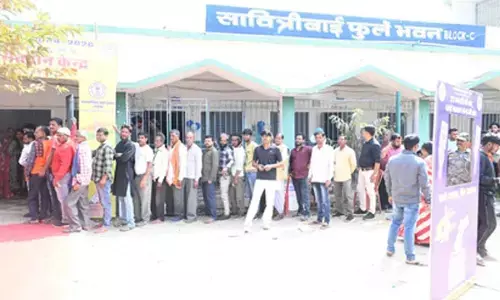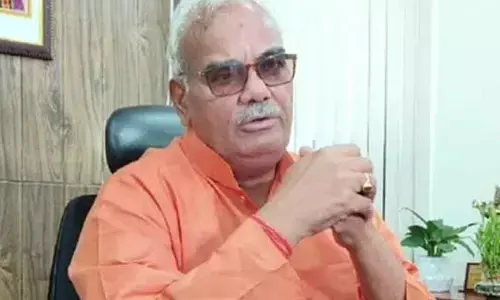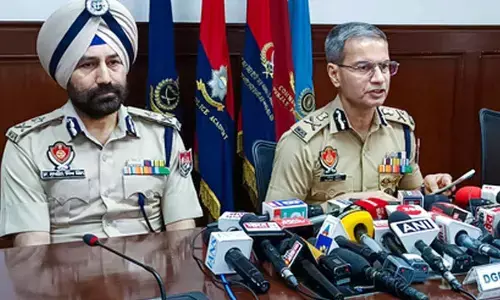Demystifying Arbitration and Conciliation Act, 2015

Justice Dispensing System in India has come under great stress for various reasons including huge pendency of cases in various courts. The injustice is particularly egregious in commercial disputes, where cases remain pending for years.
Justice Dispensing System in India has come under great stress for various reasons including huge pendency of cases in various courts. The injustice is particularly egregious in commercial disputes, where cases remain pending for years.
Accordingly, arbitration provides an effective and efficient alternative window for dispute resolution.
The Government of India has laid emphasis on making Arbitration a preferred mode for settlement of commercial disputes.
Several legislative and administrative initiatives have been taken on arbitration which aim at minimizing court intervention, bring down costs, fix timelines for expeditious disposal, and ensure neutrality of arbitrator and enforcement of awards. The Arbitration and Conciliation (Amendment) Act, 2015envisages
- quick enforcement of contracts,
- easy recovery of monetary claims,
- reduce the pendency of cases in courts and
- Hasten the process of dispute resolution through arbitration, so as toencourage foreign investment by projecting India as an investor friendly country having a sound legal framework and ease of doing business in India.
Provisions of the Act
- Relevant court for domestic and international arbitration matters:Under the Arbitration and Conciliation Act, 1996, the relevant court for all arbitration matters would be a principal civil court or high court with original jurisdiction.
- The Bill modifies this to state that in the case of international arbitration, the relevant court would only be the relevant high court.
- Applicability of certain provisions to international commercial arbitration: Part I of the Arbitration and Conciliation Act, 1996 that included provisions related to interim orders by a court, order of the arbitral tribunal, appealable orders etc. only applied to matters where the place of arbitration was India.
- Under the Bill, these provisions would also apply to international commercial arbitrations even if the place of arbitration is outside India. This would apply unless the parties agreed otherwise.
- Powers of Court to refer a party to arbitration if agreement exists:Under theArbitration and Conciliation Act, 1996, if any matter that is brought before a court is the subject of an arbitration agreement, parties will be referred to arbitration.
- The Bill states that this power of referral is to be exercised by a court even if there is a previous court judgment to the contrary. The Court must refer the parties to arbitration unless it thinks that a valid arbitration agreement does not exist.
- Interim order by a Court: The Arbitration and Conciliation Act, 1996 states that a party to arbitration may apply to a court for interim relief before the arbitration is complete. For example, a party may seek interim protection of goods, amounts, property, etc. that is the subject matter of the arbitration before a court.
- The Bill amends this provision to specify that if the Court passes such an interim order before the commencement of arbitral proceedings, the proceedings must commence within 90 days from the making of the order, or within a time specified by the Court. Further, the Court must not accept such an application, unless it thinks that the arbitral tribunal will not be able to provide a similar remedy.
- Public Policy as grounds for challenging an award: The Arbitration and Conciliation Act, 1996, permits the court to set aside an arbitral award if it is in conflict with the public policy of India. This includes awards affected by (i) fraud or corruption, and (ii) those in violation of confidentiality and admissibility of evidence provisions in the Act.
- The Bill modifies this provision to also include those awards that are (i) in contravention with the fundamental policy of Indian Law or (ii) conflict with the notions of morality or justice, in addition to the grounds already specified in the Act.
- Appointment of arbitrators: The Arbitration and Conciliation Act, 1996, permits parties to appoint arbitrators. If they are unable to appoint arbitrators within 30 days, the matter is referred to the court to make such appointments.
- The Bill states that, at this stage, the Court must confine itself to the examination of the existence of a valid arbitration agreement.
- Time period for arbitral awards: The Bill introduces a provision that requires an arbitral tribunal to make its award within 12 months. This may be extended by a six month period. If an award is made within six months, the arbitral tribunal will receive additional fees. If it is delayed beyond the specified time because of the arbitral tribunal, the fees of the arbitrator will be reduced, up to 5%, for each month of delay.
- Time period for disposal of cases by a Court: The Bill states that any challenge to an arbitral award that is made before a Court, must be disposed of within a period of one year.
- Fast track procedure for arbitration: The Bill permits parties to choose to conduct arbitration proceedings in a fast track manner. The award would be granted within six months.
Salient features of Arbitration and Conciliation (Amendment) Act, 2015
The Amendment Act has introduced some major changes in the principal Act. We have prepared a brief summary of the following key amendments:
- Relevant court for domestic and international arbitration matters:Under the Act, the relevant court for all arbitration matters would be a principal civil court or high court with original jurisdiction.
- The Bill modifies this to state that in the case of international arbitration, the relevant court would only be the relevant high court.
- Applicability of certain provisions to international commercial arbitration: Part I of the Act that included provisions related to interim orders by a court, order of the arbitral tribunal, appealable orders etc. only applied to matters where the place of arbitration was India.
- Under the Bill, these provisions would also apply to international commercial arbitrations even if the place of arbitration is outside India. This would apply unless the parties agreed otherwise.
- Powers of Court to refer a party to arbitration if agreement exists:Under the Act, if any matter that is brought before a court is the subject of an arbitration agreement, parties will be referred to arbitration.
- The Bill states that this power of referral is to be exercised by a court even if there is a previous court judgment to the contrary. The Court must refer the parties to arbitration unless it thinks that a valid arbitration agreement does not exist.
- Interim order by a Court: The Act states that a party to arbitration may apply to a court for interim relief before the arbitration is complete. For example, a party may seek interim protection of goods, amounts, property, etc. that is the subject matter of the arbitration before a court.
- The Bill amends this provision to specify that if the Court passes such an interim order before the commencement of arbitral proceedings, the proceedings must commence within 90 days from the making of the order, or within a time specified by the Court. Further, the Court must not accept such an application, unless it thinks that the arbitral tribunal will not be able to provide a similar remedy.
- Public Policy as grounds for challenging an award: The Act permits the court to set aside an arbitral award if it is in conflict with the public policy of India. This includes awards affected by (i) fraud or corruption, and (ii) those in violation of confidentiality and admissibility of evidence provisions in the Act.
- The Bill modifies this provision to also include those awards that are (i) in contravention with the fundamental policy of Indian Law or (ii) conflict with the notions of morality or justice, in addition to the grounds already specified in the Act.
- Appointment of arbitrators: The Act permits parties to appoint arbitrators. If they are unable to appoint arbitrators within 30 days, the matter is referred to the court to make such appointments.
- The Bill states that, at this stage, the Court must confine itself to the examination of the existence of a valid arbitration agreement.
- Time period for arbitral awards: The Bill introduces a provision that requires an arbitral tribunal to make its award within 12 months. This may be extended by a six month period. If an award is made within six months, the arbitral tribunal will receive additional fees. If it is delayed beyond the specified time because of the arbitral tribunal, the fees of the arbitrator will be reduced, up to 5%, for each month of delay.
- Time period for disposal of cases by a Court: The Bill states that any challenge to an arbitral award that is made before a Court, must be disposed of within a period of one year.
- Fast track procedure for arbitration: The Bill permits parties to choose to conduct arbitration proceedings in a fast track manner. The award would be granted within six months.
Further, in order to ensure speedy resolution of commercial disputes and to facilitate effective conduct of international and domestic arbitrations rose under various agreements, it has been considered necessary to go into various factors to accelerate arbitration mechanism and strengthen the arbitration ecosystem in the country. It is also important to examine specific issues and roadmap required to make India a robust centre for international and domestic arbitration. With the above end in view, the Government hasdecided to constitute a High Level Committee (HLC) in the Ministry of Law and Justice.
Key recommendations of B.N.SriKrishna report
The Committee has divided its Report in three parts.
- The First part is devoted to suggest measures to improve the overall quality and performance of arbitral institutions in India and to promote the standing of the country as preferred seat of arbitration. The Committee in this context have inter alia recommended –
- Setting up an Autonomous Body, styled the Arbitration Promotion Council of India (APCI), having representatives from all stakeholders for grading arbitral institutions in India.
- The APCI may inter alia recognize professional institutes providing for accreditation of arbitrators
- The APCI may hold training workshops and interact with law firms and law schools to train advocates with interest in arbitration and with a goal to create a specialist arbitration bar comprising of advocates dedicated to the field.
- Creation of a specialist Arbitration Bench to deal with such Commercial disputes, in the domain of the Courts.
- Changes have been suggested in various provisions of the 2015 Amendments in the Arbitration and Conciliation Act with a view to make arbitration speedier and more efficacious and incorporate international best practices.
- The Committee are also of the opinion that the National Litigation Policy (NLP) must
- Promote arbitration in Government Contracts.
- The Committee in Part II of the Report reviewed the working of ICADR(International Centre for Alternate Dispute Resolution) working under the aegis of the Ministry of Law and Justice, Department of Legal Affairs. The Institution was set up with the objective of promoting ADR methods and providing requisite facilities for the same.
- The Committee has preferred for declaring the ICADR as an Institution of national importance and takeover of the Institution by a statute.
- The Committee is of the view that a revamped ICADR has the potential be a globally competitive institution.
- As regards the role of arbitrations in matters involving the Union of India, includingbilateral investment treaties (BIT) arbitrations, the Committee in Part III of the Report has inter alia
- recommended for creation of the post of an ‘International Law Adviser’ (ILA)who shall advise the Government and coordinate dispute resolution strategy for the Government in disputes arising out of its international law obligations, particularly disputes arising out of BITs.
- The Committee has emphasized that ILA may be consulted by the Department of Economic Affairs (DEA), at the time of negotiating and entering into BITs.
- The recent report of the Justice B.N. Srikrishna committee, constituted to prepare a road map to make India a hub of international arbitration, has recommended many changes in Indian arbitration law and institutional mechanisms to promote arbitration in India.
- Its recommendations on bilateral investment treaty (BIT) arbitration assume importance as India is currently battling 20-odd BIT disputes. These recommendations are largely on the issue of managing and resolving BIT disputes.
- Changes brought in the Arbitration and Conciliation Act, 1996
Various changes brought by the amendment include
- Now the arbitration agreement contained in form of communication through electronic means shall also be treated as an arbitration agreement in writing.
- Appointment of arbitrators shall be made by the Supreme Court or High Courts, as the case may be instead of the Chief Justice of India or Chief Justice of High Court.
- In case of international arbitration, the relevant court would only be the High Court having original ordinary jurisdiction
- To ensure neutrality of arbitrators, when a person is approached in connection with possible appointment as arbitrator, he is required to disclose in writing, the existence of any relationship or interest of any kind.
- Now the arbitration tribunal shall have power to grant all kinds of interim measures which the court is empowered to grant.
- The amendment introduces a provision that requires an arbitration tribunal to make its award within 12 months. This may be extended by a 6 months period.
- The amendment further permits parties to choose to conduct arbitration proceedings in a fast track manner. The award would be granted within 6 months.
- In recent times, arbitration has emerged as a preferred option to settle commercial disputes in India.
- The amendment act has brought clarity on many aspects, which were previously part of judicial interpretation.
- With judiciary already overloaded with high pendency of cases, the amendment shall help emerge arbitration as an effective alternative mechanism.
- Changes will also make arbitration user friendly and cost effective.
- It will also be helpful for private companies and will help improve ease of doing business in India.
- Overall it will help conclude the arbitration process expediently and in transparent manner.
- Each amendment made to the act will make arbitration more “user friendly” in addition to reduction of cost. By providing speedy resolution of the disputes, the act will improve the “ease of doing business” in India and promote ‘Make in India’ campaign.
Analysis
- NBFCs(Non Banking Financial companies) give secured loans.
- In case of defaults, borrowers use the court process to prevent these firms from taking possession of mortgaged assets. This will change now with the modifications to the Act.
- Empowering the arbitral tribunal to pass interim orders, fixing time-limit for passing an award and fast-tracking arbitral procedure, among others, are the salient features of the amended Act.
- These new provision will avoid costs, namely court fee and other expenses. Besides, it will also save undue delay.
- Courts are still empowered to grant interim relief either before the commencement of arbitration or even after the commencement if it is shown that an order from the arbitral tribunal was efficacious.
- The amended Act also provides for a time-frame to pass an award.
- A new section has been added to ensure that an award is passed within a year. This means that the arbitrators will not be able to grant much time to the parties, and are under an obligation to pass awards within a year.
- This will act as a deterrent against borrowers/guarantors who drag on the proceedings,
- In the amended Act, there is no such automatic stay of the enforcement of the award upon filing of application by the borrower for setting aside an award. Stay can happen only if courts grant it, and on terms, including that of depositing part-sum of the award, set by them.
- It will provide scope for recovery as the courts may pass an order for stay subject to certain conditions, which may include a substantial payment, and may even discourage parties from challenging the awards.
- Recommendations on Dispute management
For better management of BIT disputes,
- The committee recommends the creation of an inter-ministerial committee (IMC),with officials from the
- Ministries of Finance,
- External Affairs and
- Law ministry
- It also recommends hiring external lawyers having expertise in BITs to
- boost the government’s legal expertise;
- creating a designated fund to fight BIT disputes;
- appointing counsels qualified in BITs to defend India against BIT claims; and
- Boosting the capacity of Central and State governments to better understand the implications of their policy decisions on India’s BIT obligations.
- The most significant recommendation is the creation of the post of an ‘international law adviser’ (ILA) to advise the government on international legal disputes, particularly BIT disputes, and who will be responsible for the day-to-day management of BIT arbitration.
How will these recommendations amount to duplicating the existing arrangement?
The intent of augmenting the government’s expertise on BITs and designating a single authority to deal with all BIT arbitrations is laudable. However, this recommendation will amount to duplicating the existing arrangement to offer advice on international law, including BITs, to the government.
- The Legal and Treaties (L&T) division of the External Affairs Ministry is mandated to offer legal advice to the government on all international law matters including BIT arbitrations.
- Instead of creating a new office — which will only intensify the turf wars between ministries, and deepen red tape — the L&T division should be strengthened.
- This division could be made the designated authority to deal with all BIT arbitrations and thus act as the coordinator of the proposed IMC.
- Furthermore, the IMC should have a member from the Commerce Ministry as well. This ministry while dealing with India’s trade agreements — that also cover investment protection — works in tandem with the Finance Ministry. Thus it is only prudent that both be a part of an IMC on BIT dispute management.
Recommendations on Dispute resolution
- In resolving BIT disputes, the committee has made some useful interventions such as mentioning the possibility of establishing a BIT appellate mechanism and a multilateral investment court.
- However, its conclusion that the investor-state dispute settlement (ISDS) mechanism, given in Article 15 of the Indian Model BIT, provides an effective mechanism for settling BIT disputes between an investor and state is problematic for the following reasons.
- First, Article 15 requires foreign investors to litigate in domestic courts at least for a period of five years. Such strict limitation periods dilute the effectiveness of the ISDS mechanism.
- Second, there are many other jurisdictional limitations given in Article 13 that also limit the usefulness of ISDS.
- Third, the ISDS mechanism in the Indian Model BIT covering issues such as appointment of arbitrators, transparency provisions, enforcement of awards, standard of review, which have a bearing on the efficiency of the ISDS mechanism.
- The report is silent on all these critical issues.
Conclusion
- BIT arbitration has three aspects: jurisdictional (such as definition of investment),substantive (such as provision on expropriation) and procedural (ISDS mechanism). While the commission’s mandate was to focus on BIT arbitration, i.e. on all the three parts, strangely, it narrowed it down to just the procedural aspect.
- The committee’s explanation that since issues like expropriation require greater debate, it decided not to make any recommendations on these issues is weak. Despite making some useful suggestions, the committee has squandered a great opportunity to comprehensively push for the recalibration of the Indian BIT regime, which has oscillated from being pro-investor to being pro-state.








